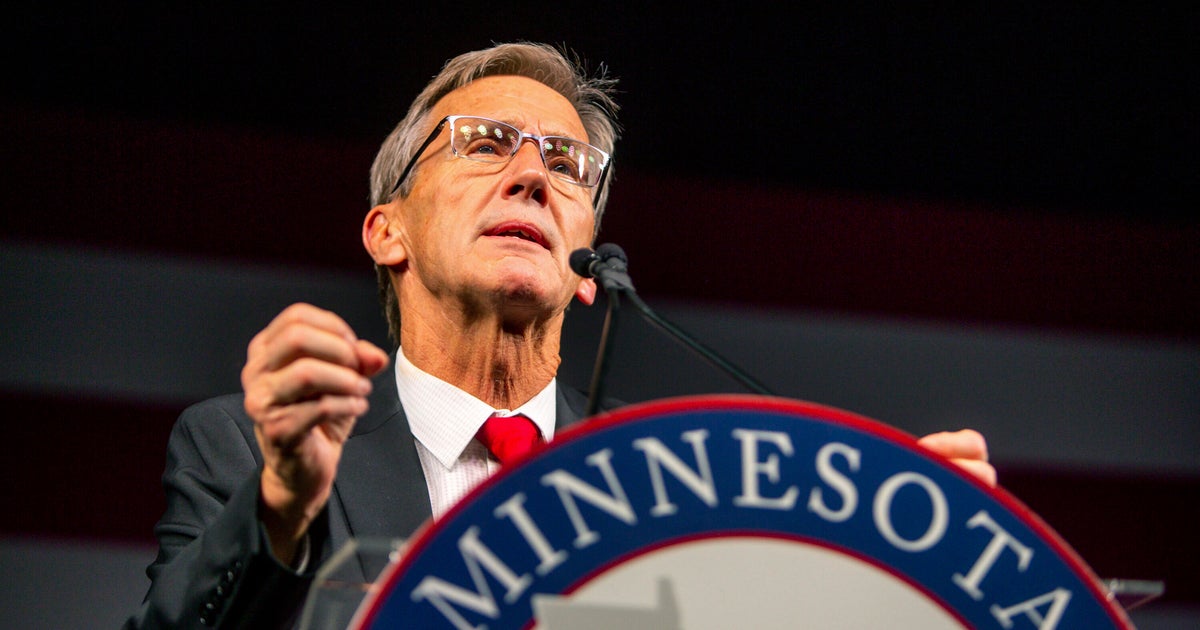Schumer says first priority for new Senate will be coronavirus relief bill
Washington — Senate Minority Leader Chuck Schumer, who will take over as the chamber's majority leader in the coming weeks, laid out Tuesday the agenda the new Democrat-controlled Senate will pursue once President-elect Joe Biden is sworn into office, setting as the first priority the approval of another coronavirus emergency relief package with $2,000 checks to the American people.
Schumer detailed the issues the Senate will take up in a letter to his Democratic colleagues, which include legislation to address climate change, improve the health care and child care systems, and fix income inequality. The New York Democrat also said the Senate will also pursue immigration, democracy and criminal justice reforms.
But topping the agenda for the Democrat-controlled Senate will be coronavirus relief legislation that includes $2,000 direct payments to Americans. Congress passed another emergency package at the end of 2020 that included $600 checks, but efforts to boost the payments — pushed by President Trump and Democrats — failed.
"As you know from our work at the end of the last Congress, the job of COVID emergency relief is far from complete," Schumer told senators. "Democrats wanted to do much more in the last bill and promised to do more, if given the opportunity, to increase direct payments to a total of $2,000 — we will get that done."
Schumer said the Senate will also provide further support for vaccine distribution and assistance for American families, small businesses, school and state and local governments dealing with the fallout from the coronavirus pandemic.
Mr. Biden, too, has vowed that another coronavirus relief measure will be a foremost priority for him once he is sworn in January 20.
"Working with President-elect Biden and our House Democratic colleagues, the U.S. Senate will finally address the major challenges facing our country that have too long been ignored," Schumer said.
Democrats secured their razor-thin majority in the Senate after Jon Ossoff and Raphael Warnock unseated incumbent Republican Senators David Perdue and Kelly Loeffler, respectively, in Georgia's January 5 runoff elections. With the Senate split 50-50, Vice President-elect Kamala Harris will be the tie-breaking vote, giving Democrats an edge.
Schumer will take over as majority leader as the Congress grapples with the effects of the January 6 assault on the U.S. Capitol, during which a pro-Trump mob violently pushed its way into the Capitol building. The deadly attack led to the evacuation of both the House and Senate and has given way to questions about the preparedness of U.S. Capitol Police.
Schumer said the security failures were "unacceptable" and pledged that the events would be fully investigated and "every necessary security measure" taken for Mr. Biden's inauguration inauguration in just over a week.
"The physical and emotional damage done by these domestic terrorists to the U.S. Capitol and all who lived through it was despicable. The loss of life that occurred as a result of this attack, including one Capitol Police officer, was needless and tragic," he said. "As we continue to take action to address these events – including action to mitigate and hopefully remove the immediate and ongoing danger President Trump poses to our country – we must remain vigilant against potential threats and future violence in the lead up to the inauguration."
The Departments of Homeland Security and Defense, as well as the U.S. Secret Service, are holding an all-senators briefing Tuesday on security for the inauguration, and thousands of National Guard members have been authorized ahead of the inauguration.
"The core tenets of our system of government have been challenged," Schumer said. 'Violence descended on Capitol Hill, the sacred temple of our Democracy. A once-in-a-century pandemic continues to devastate our nation. The work of the 117th Congress will begin in the wake of a devastating attack, on the heels of a devastating year. "
The senator said last week's riots underscore the need for Mr. Biden's nominees to key national security posts to be swiftly confirmed, including his picks to lead the Departments of Defense, Homeland Security, State and Justice.



